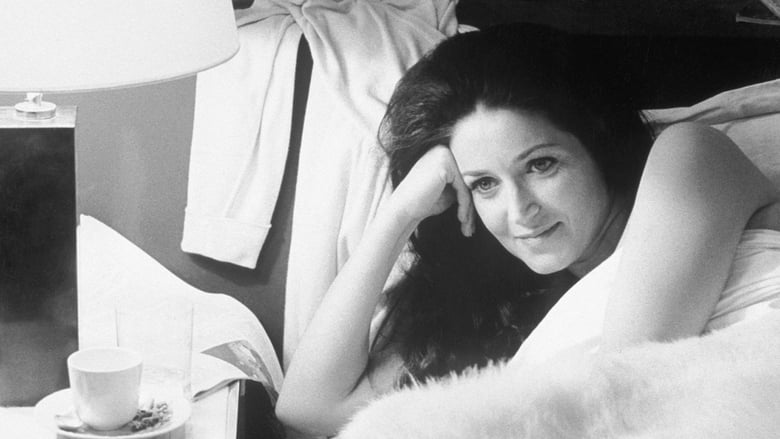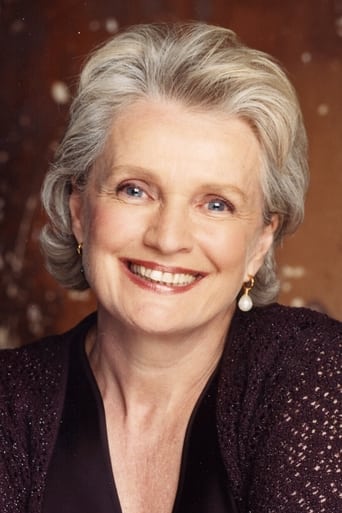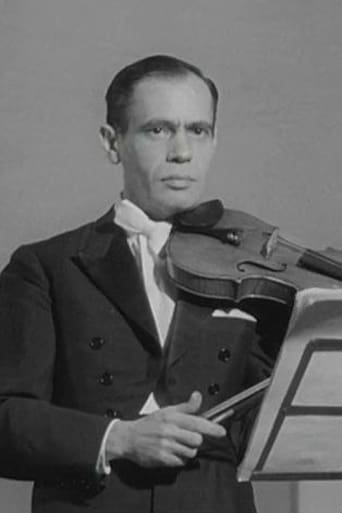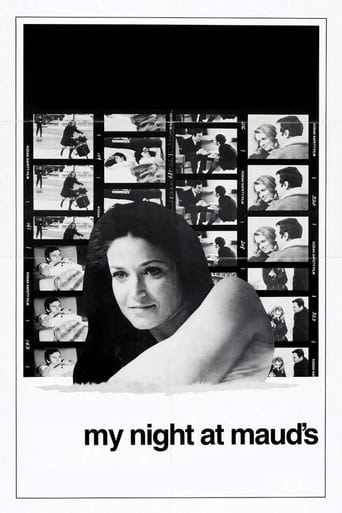
The rigid principles of a devout Catholic man are challenged during a one-night stay with Maud, a divorced woman with an outsize personality.
Similar titles

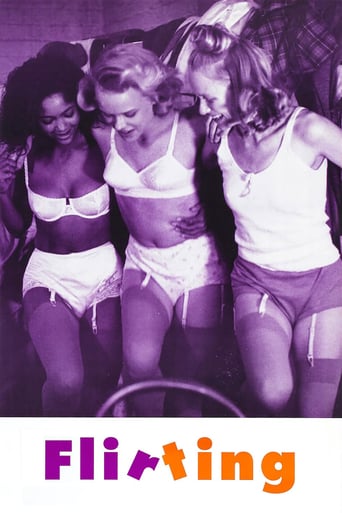



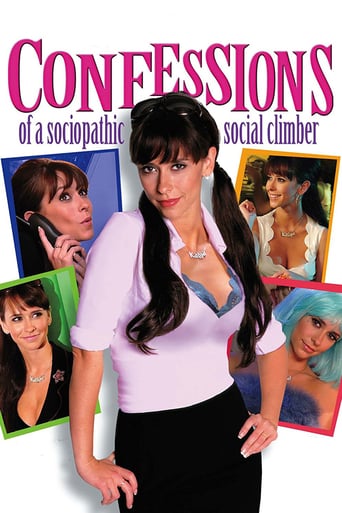

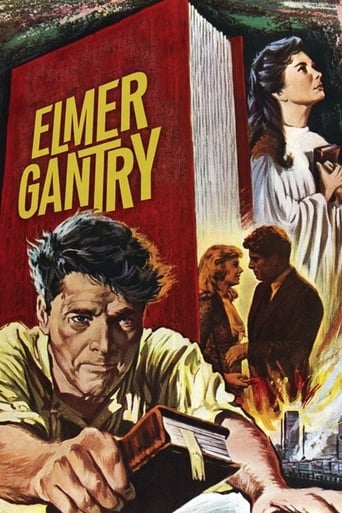

You May Also Like
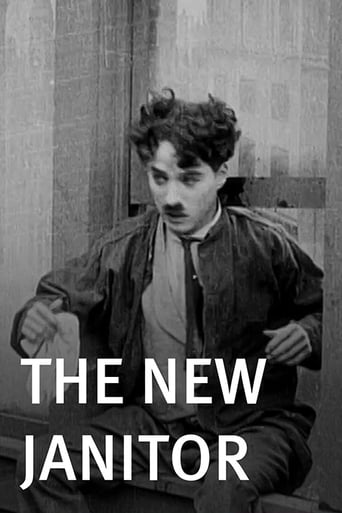
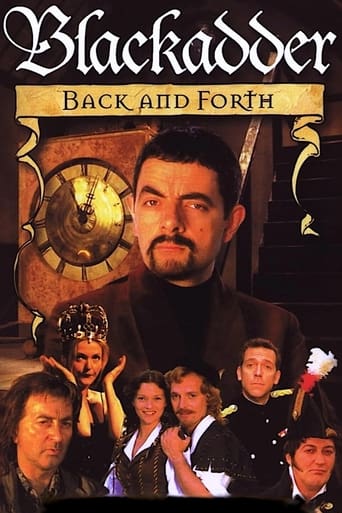

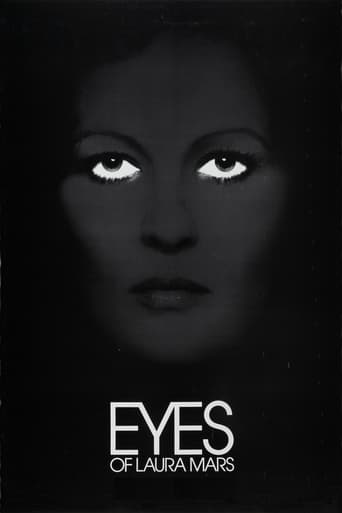
Reviews
Sorry, this movie sucks
It's entirely possible that sending the audience out feeling lousy was intentional
This movie was so-so. It had it's moments, but wasn't the greatest.
The film creates a perfect balance between action and depth of basic needs, in the midst of an infertile atmosphere.
I imagine this film was remarkably personal. I suppose more than a few professional-aged practising Roman Catholic men have found themselves in the same position as does Jean-Louis here: among friends who do not share the same values, who seem to suppose they do you a favour by "loosening you up" a bit (i.e., by pressuring you to put yourself in an occasion of sin)...Maud, however, does not really want to "loosen up" Jean-Louis. We get the impression that she's something of a "skank," but on the other hand she wants and expects honesty--and she teaches Jean-Louis to want and expect the same. "I like men who know what they want," she explains to him. And so Jean-Louis contemplates and decides what he wants.Interestingly, although the freethinker Maud is the pivotal character in Jean-Louis's self-transformation, and although the philosophical conversations center around the Maud, the Catholic Françoise is unquestionably the more complex and intriguing character. Maud, though well-meaning visibly lacks emotion and soul, fault of her completely libertine upbringing; she seems, in a sense, prisoner to her nonchalant worldview. Françoise, however, radiates a vivid spectrum of feeling and life experience.The Jansenist subtext was difficult for me to make out on the first viewing, and I may have to watch this again to really get it. My instinct is to suggest that Jean-Louis is the Jansenist and Françoise the Jesuit-dévotist, but I cannot say for sure. That I cannot immediately identify the significance of Pascal to this uvre is rather disturbing to me, having studied a fair amount of 17th and 18th century French history and literature.Another filmmaker could easily have turned this into a simple and boring story of abandonment of faith. But not Éric Rohmer, who was interesting among Nouvelle Vague directors for being firm in his Catholic convictions (just this year, his funeral Mass was at a church just five minutes' walk from my home). Thus, Jean-Louis does not, in the end, decide that he wants something "bad" and libertine.
There are several hilarious scenes in which Maud practically throws herself at Trint. These nonsensical sexual shenanigans culminate in the morning-after(-nothing-happened) (after Le Nuit Spectaculaire Philosophique) when she almost tries to rape him. However, his Catholic faith turns out to be far far too resilient, withstanding even the most un-withstandable temptation of them all (a nude Maud in heat)! If you didn't laugh there, then you're taking this overrated flick far far too seriously.It seems as if almost every (older) French film contains at least some element of a fanciful male fantasy. Sexy-looking women/girls throwing themselves breast-first into the sweaty hands of crappy-looking (usually aging) men: what nerdy, middle-aged, sexually-neglected film critic wouldn't drool all over his sofa over that, later hyping the movie for all its worth? After he finishes wiping off the drool, the film critic proceeds to devise a way to justify his fascination for the movie (god forbid he should admit that the real reason was sexual titillation) with a clever(?) cover-up reason: some cockamamie semantic word-salad about the alleged philosophical insights which the said movie offers. Some nonsense that, at closer scrutiny, holds little or no water. However, most film students (usually lobotomized at birth) gobble that stuff up and that's how such a movie gets considered to be not just a mere mortal's produce, but a gift from God Himself. Rohmer, the God. (Of course, since film students are mostly political extremists, their real god is usually Marx.)(But at least this time around the female throws herself at someone her own age. Usually we have lolitas and 55 year-old men.)I, too, occasionally enjoy male fantasies in certain films (no, not just porn), but at least I'm honest about it. I admit it, instead of making lame excuses and explanations about the movie having blown me away with its "wise" musings on Marxism, Pascal, Catholicism, and mathematics.Speaking of which, Pascal's retarded "small probability / high gain" wager is only matched by Vidal's cretinous world-view (small wonder: a flaming Marxist). Vidal is a philosophy professor, and as 90% of all Western university professors he is staunchly Left-wing. This is one of the rare aspects of the movie that IS realistic. Btw, if one of Rohmer's intentions was to bring us closer to Pascal - getting us to rush to libraries and bookstores in search of his pitiful ideas - he may have failed, at least in my case; all Rohmer accomplished was to remind us how utterly cretinous many aspects of that Frenchman's philosophy are.Much of the philosophic dialogue isn't nearly as intelligent as might appear to the more impressionable, indiscriminating viewer: more often than not an idea/concept is brought up by one character, only to be responded with a non-sequitor or with a reply that is only vaguely related to the question/issue at hand. Hence the "thoughtful" exchanges were sometimes decidedly UNintelligent, almost schizophrenic in nature with characters talking past each other. Naturally, the actors were given instructions to babble the philosophy-related lines as quickly as possible so as not to give the viewers a chance to realize how many of them stink from a logic standpoint.How to classify MNAM... A romantic philosophical drama? Most of the dialogue consists of discussions about the above-mentioned four subjects. Even the "flirtation" between Trint and Maud sounds more like two deluded philosophy students chewing over age-old ideas than two horny 30-somethings - and they ARE both horny, not just male-fantasy-fulfilling Maud.Maud is obviously the image of the ideal woman in Rohmer's eyes. She is as fictional as Darth Vader. Try finding a woman like this: good luck! (This is not intended as criticism of the movie.) Rohmer tries to sell Maud as a perceptive, intelligent, and witty person, which may all be true to some extent, but it's all overshadowed by the simple fact that she is a tart who will try to lure a man into bed a mere 15 minutes after having met him for the very first time. Realism? Not much. The fact that she is undeniably/objectively sexy, whereas Trint is much closer to resembling a sneaky little child-molester more than a Paul Newman-like stud, doesn't exactly help the movie's constantly rising absurdity levels either.How about Vidal's motives for introducing Trint to the nymphomaniac Maud? "He wanted to free himself from me by throwing you in my arms". Which human universe or dimension had Rohmer resided in? He may have been an expert on the so-called "human condition", but only as it relates to some imaginary humans he had invented in his twisted view of mankind out of which resulted the semi-bizarre psychology of his characters.MNAM has some typically confusing 60s-Euro-trash moments: at one point Trint gets the promise of a first date with the church blond, but then just a scene later he kisses Maude for the first time. And what happens next? Trint tells Maude that it was "just a kiss of friendship". Huh?? Did I miss out on any scenes in-between? Did the editors all get fired before they managed to complete putting the film together in one coherent piece? Trint's behaviour is totally irrational. In those two scenes Rohmer manages to complete destroy any potential for understanding Trint's character. Not to mention that nonsense about "the kiss of friendship" (it wasn't a cheek kiss, that much I can reveal). Does one need to be French to understand that kiss - or these people? Or does one just need to be properly soused to connect all the dots in a (subjectively) meaningful manner?...La Grande Revelation de Fin didn't impress me either. So the blond tart was the one who had an affair with Maud's ex-husband? WOW. What a plot-twist. I was shaking with excitement.I'm not saying this is a bad movie, merely that it is ridiculously drooled over by people who are susceptible to BS. It's watchable, not too dull.
My Night at Maud's is a "talky" film, though like the main character of Jean-Louis in going after the woman to marry this actually is a perception that is on face-value a little demeaning. This is such a rich screenplay because it takes its characters seriously and honestly, and there's nothing cheating in dealing with characters who have problems in confronting how to approach emotional contact, of using religion as a guise, or trying to follow a 'code of conduct' (as one French critic called it on the Criterion DVD of the film) that leads into a complex and troubling end. Even more-so than Love in the Afternoon, this is a work where the male perspective must have the counterpoint of a woman who is much more vibrant and life-affirming by not being connected to a kind of constricting religious ideology that can't really lead to anywhere aside from compromise. Jean-Louis is such a man who sees blonde Francoise (Stardust Memories' Barrault) riding on a motorcycle and decides right then that she will be the one he will marry. His is an idealized love where despite saying that he's been in love and relationships before he has not had to really make a leap into a consequential decision.The philosophical arguments involved with Jean-Louis, Francoise and even with Maud, of whom Jean-Louis has a pensive and indecisive fling over the course of 24 hours, can last for quite a while after film's end, which is a major credit to Rohmer in making these characters real within the specific contexts. They may be bourgeois, or close to it, but the concerns of the characters are universal: How does one make a leap from emotional experience to belief. Or on the flip-side how does one who probably doesn't have any belief either way (watch Francoise's eyes when she goes with Jean-Louis to church, it's an exceptionally subtly acted scene) and has to fall into a kind of false love, where because she already knows of the image that Jean-Louis already has of her before she says a word that she has to continue it, marry him, have a child, and live with his own moral insecurities? The ending may seem clean-cut, but it's a lot more complex as a sort of continuing cycle. Marriages are formed and bonds made between people all the time when there is no love, but what might be a reason? This isn't Rohmer's central point perhaps, but it's an intelligent posit that is right there in Rohmer's character study.And all the while, through Rohmer's simple direction- the only big stylistic choice, perhaps important in the Bergman sense, is the use of the landscape of winter and the mainstream conformity of Christmas- he gets great performances from his actors, as if in a play all working towards the cores of the character in order that all of the at-times heavy dialog comes off in a fairly approachable light. Rarely will you get Pascal and romance thrown together into a conversation, but it works in this case, and for someone who's only known Pascal from a triangle it's enlightening to see how moral choice, of probability and chance, come out in ways that leap from one place to another but always coherently in the scenes at Maud's apartment. There's a good deal under the surface that comes out little by little, and if one can give in to the rhythm of Rohmer's characters the rewards are just as satisfying as with other more flamboyant works by Rohmer's contemporaries. It may not be Jules and Jim, but in its own disquieting way it's just as powerful in the implications drawn from the characters, particularly long after the film ends. A+
One of the most beautiful black and white films ever made, MA NUIT CHEZ MAUD might have been filmed today as it has been restored to pristine form, supervised by Eric Rohmer himself, and that only adds to the air of seduction that is ever present between the lead character, Jean-Luis, and the woman he dodges not without engaging in some intellectual flirtation first -- the lovely Maud.MA NUIT CHEZ MAUD starts in almost near stillness. Jean-Luis (Jean-Luis Trintingant) attends mass one day, and there he encounters a fleeting blond beauty, Francoise (Marie-Christine Barrault) who somehow keeps getting away. Later on, an encounter with an old friend, Vidal (Antoine Vitez) leads to Vidal's invite that Jean-Luis spend the night at his friend Maud's house. While the two men spar on the nature of free will and religion -- namely, Catholicism and Christianity as well as on the theories of Pascal, Maud is most definitely a whirlwind of freedom and ages ahead of her own time. Divorced, living with her young daughter, with a casual look at how unlucky she's been with men, including Vidal, with whom she had had a one-night stand that went nowhere despite his unrequited feelings for her.Once Vidal leaves, Jean-Luis stays the night. In the course of that night, Maud effortlessly engages Jean-Luis in a game of intellectual chess, goading him with his own illusions about love and his feminine ideal. She's sharp, too, as when she continually points towards "his Catholic blonde" and the fact that she herself would never fit the bill, being neither Catholic nor blond and already divorced. When Jean-Luis asks Maud how did she come to divorce, she opens up, and reveals herself to be quite vulnerable despite her rough exterior. It seems Maud's husband was cheating on her with a pretty, blond Catholic girl whom Maud herself could not stand, and despite her efforts to drive the girl away, her marriage was destroyed. Another lover proved fruitless, as he was killed in an automobile accident.Night becomes day, and Jean-Luis does not make a move on Maud. When Maud does, he rejects her and she tells him to leave because she wants a man who knows what he wants. Even so, they remain friends, and meet up occasionally. It's at this point where Jean-Luis reconnects with Francoise, and in a move shy of stalking, he bamboozles her into accepting him into her life, even when she lets him in on the fact that he may not like some things about her. A short meet between Jean-Luis, Francoise, and Vidal says pages about her reaction to Vidal (and what history they may have together) even when it's never revealed. Jean-Luis is so hypnotized by her cool looks he never reads her messages and apparent rejection, even when it's clear that Francoise and Maud share a little too much history for either of the two to be comfortable together.One of Eric Rohmer's finest films, MA NUIT CHEZ MAUD presents the situation of how one man's ideal turns out to be sitting atop a rotting, hypocritical pedestal, and how a more carnal, yet intelligent, honest, and accessible woman, whom he would be happy with as she is also looking for that unattainable man for a committed relationship, is the one he lets get away. A simple movie in which action is set aside and the characters pour their thoughts out, and they themselves are the ones that dictate what is to come later on, MA NUIT CHEZ MAUD gives its performers reams of material to work on. Jean-Luis Trintingant is restrained in his staunch position to remain committed to his religion and blind to what is staring at him in the face. Francoise Fabian, with her tanned looks, deep, wide eyes and raven black hair, is an earlier version of Demi Moore, but with a razor-sharp wit and sophistication. Marie Christine Barrault has the small but crucial character that ties the quartet together.
Top Streaming Movies











